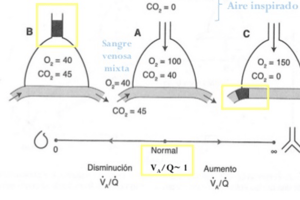Podcast
Questions and Answers
¿Qué fase marca el comienzo del ciclo menstrual y el inicio de un nuevo ciclo?
¿Qué fase marca el comienzo del ciclo menstrual y el inicio de un nuevo ciclo?
- Fase menstrual (correct)
- Fase ovulatoria
- Fase lútea
- Fase folicular
¿Qué estructura se transforma en el cuerpo lúteo después de la ovulación?
¿Qué estructura se transforma en el cuerpo lúteo después de la ovulación?
- Cuerpo amarillo
- Folicular (correct)
- Trompa de Falopio
- Óvulo maduro
¿Cuál es la función principal de la progesterona en el ciclo menstrual?
¿Cuál es la función principal de la progesterona en el ciclo menstrual?
- Promover el desprendimiento del revestimiento uterino
- Estimular la liberación de óvulos
- Ayudar a engrosar el revestimiento uterino (correct)
- Iniciar la menstruación
¿En qué fase del ciclo menstrual se produce la liberación de un óvulo maduro del folículo hacia la trompa de Falopio?
¿En qué fase del ciclo menstrual se produce la liberación de un óvulo maduro del folículo hacia la trompa de Falopio?
¿Qué ocurre si no se produce la fertilización durante la fase ovulatoria del ciclo menstrual?
¿Qué ocurre si no se produce la fertilización durante la fase ovulatoria del ciclo menstrual?
¿Cuánto tiempo aproximadamente dura la fase folicular del ciclo menstrual?
¿Cuánto tiempo aproximadamente dura la fase folicular del ciclo menstrual?
¿Qué papel desempeña la progesterona en el ciclo menstrual?
¿Qué papel desempeña la progesterona en el ciclo menstrual?
¿Qué hormona alcanza su pico justo antes de la ovulación?
¿Qué hormona alcanza su pico justo antes de la ovulación?
¿Cómo influyen las hormonas sexuales en el sistema nervioso central?
¿Cómo influyen las hormonas sexuales en el sistema nervioso central?
¿Qué puede interrumpir el funcionamiento normal del ciclo menstrual?
¿Qué puede interrumpir el funcionamiento normal del ciclo menstrual?
¿Cómo puede comprender mejor el conocimiento de los ciclos menstruales ayudar a las personas?
¿Cómo puede comprender mejor el conocimiento de los ciclos menstruales ayudar a las personas?
¿Qué objetivo tienen los esfuerzos recientes para promover la salud menstrual?
¿Qué objetivo tienen los esfuerzos recientes para promover la salud menstrual?
Flashcards are hidden until you start studying
Study Notes
Understanding the Menstrual Cycle
The menstrual cycle refers to the physiological process experienced by females during their reproductive years. As stated by researchers, menstruation is a cyclical bleeding phenomenon that occurs in women during their fertile period. Here's what you need to know about the various stages of the menstrual cycle and how it affects individuals.
Phases of the Menstrual Cycle
Each month, women undergo four distinct phases of the menstrual cycle:
-
Menstrual Phase: This phase marks the start of the menstrual cycle and the beginning of a new cycle. During this time, the uterine lining breaks down and sheds, which causes bleeding from the vagina.
-
Follicular Phase: Once menstruation ends, the follicles in the ovary begin to mature. These structures contain eggs, which are released into the fallopian tube during ovulation. This phase typically lasts about two weeks.
-
Ovulatory Phase: During ovulation, a mature egg is released from the follicle and moves into the fallopian tube. If fertilization does not occur, the uterus prepares itself for another cycle.
-
Luteal Phase: After ovulation, the ruptured follicle transforms into the corpus luteum. This structure produces progesterone, which helps thicken the uterine lining in preparation for a fertilized egg. If pregnancy does not occur, the corpus luteum breaks down, leading to the start of another cycle.
Impact of Sexual Hormones
The menstrual cycle is influenced by various factors, including sexual hormones. Estrogen and progesterone play crucial roles in regulating the menstrual cycle. During the follicular phase, estrogen levels rise, causing increased thickness and vascularity of the endometrium. As ovulation approaches, the level of estrogen peaks, triggering the release of the mature egg. After ovulation, progesterone levels increase, helping maintain the thickened endometrial layer until the next menstrual period.
Research has shown that creativity and the menstrual cycle are interconnected. Studies have demonstrated that sexual hormones affect the central nervous system, potentially modifying its function both temporarily and permanently. Creativity, defined as the ability to generate novel and practical ideas, is influenced by these changes in brain activity throughout the stages of the menstrual cycle.
Menstrual Education and Equity
The societal perception and education surrounding menstruation have evolved significantly over time. In recent years, there has been an increased focus on promoting comprehensive menstrual health through educational strategies that are inclusive and culturally sensitive. These efforts aim to educate both men and women about menstrual cycles, create awareness of menstrual inequity, and encourage open discussions about menstruation.
Impact on Physical Health and Wellbeing
The menstrual cycle can also impact women's physical health and wellbeing, particularly during certain phases. For example, some women may experience premenstrual syndrome (PMS), which can include symptoms such as mood changes, bloating, and cravings. Additionally, various conditions like endometriosis, polycystic ovary syndrome (PCOS), and uterine fibroids can disrupt the normal functioning of the menstrual cycle.
Understanding the complexities of the menstrual cycle can help individuals better manage their health, reduce stigma surrounding menstruation, and promote overall wellbeing. By fostering open conversations about this natural process, we can create a more inclusive and supportive environment for all individuals experiencing the menstrual cycle.
Studying That Suits You
Use AI to generate personalized quizzes and flashcards to suit your learning preferences.




